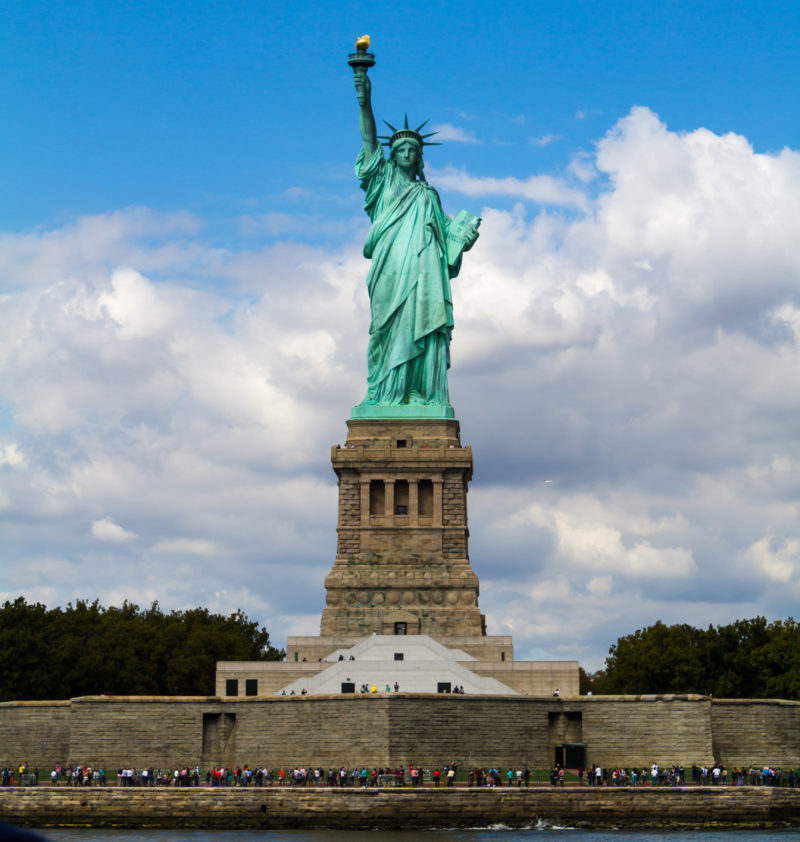In response to a reader burdened by the current crisis at the US-Mexico border, we are reposting two articles about immigration that Darrow wrote last year. Even though these posts predate the current situation, the material is still applicable, and the articles highlight universal principles.
The first, originally titled What’s Wrong with the RAISE Act? was reposted earlier this week under the title, Young Immigrants Coming to America: What’s at Stake? Here’s the second.
~
Darrow recently published What’s Wrong with the RAISE Act? dealing with the US immigration policy. One of our faithful readers, Dennis Warren, responded with this question about immigration policy:
The spirit here reminds me of the last two paragraphs of John Piper’s famous message about world evangelism … About “balance” though, I want to understand what specific types of rules constitute a legitimate way for America to remain a nation, by not having completely open borders?
A great question; thanks, Dennis! Virtually everyone probably agrees that our immigration policy needs overhaul.
Darrow has already replied but we agreed to post Darrow’s reply as a separate post for those who did not see the comment thread.
~
Dennis,
Thanks for your note. Here are some initial reflections on some of the specifics of a better immigration policy:

- Open arms are different from open borders. We must continue the welcome represented by the Statue of Liberty, but we need an orderly
process. People are welcomed into a nation, not simply a piece of geography. - We need a clear, rational and reasonable immigration policy, one that will untangle the chaos we are currently experiencing.
- Our priority needs to be people in need of refuge from religious and political persecution, not simply those looking for better economic opportunities.
- As I pointed out in the post, I believe President Trump’s initial policy is based specifically on economic benefit for the USA. Yes, our current immigration policies need to be reformed. But the reforms need to be based on our common vision of a free society, our founding documents and the worldview and principles behind them.
- Policies should be in place to serve people who are “longing to be free.” Political and religious refugees should be at the front of the line. On the other hand, those who want to subvert our values and destroy our democratic institutions should never be let in. Many Christians in the Middle East are being persecuted simply for their faith. They should be at the top of the list. However, more Muslims than Christians are being persecuted by fellow Muslims. These should be free to enter if they want to live in a free and pluralistic society. Surveys indicate that over half of all Muslims living in the US want Sharia law to supersede the Constitution. This is untenable. Before a Muslim (or anyone, for that matter) is allowed to enter the US they must be required to pledge their allegiance to America’s freedom and Constitution. This litmus test is reasonable and necessary. Those, on the other hand, who want to live under Sharia should seek asylum in a Muslim country.
 We need a well-organized and mandatory program for assimilation of all refugees. This should include learning English, studying the history of the USA, our founding documents and the principles behind those documents, and the virtues of a pluralistic society. The US is a “melting pot” of many cultures that contribute to the flavor of the whole, not a “salad bowl” of ingredients that maintain their separate existence. We must not allow the development of “dish cities” or “no go zones” as are found all over Europe.
We need a well-organized and mandatory program for assimilation of all refugees. This should include learning English, studying the history of the USA, our founding documents and the principles behind those documents, and the virtues of a pluralistic society. The US is a “melting pot” of many cultures that contribute to the flavor of the whole, not a “salad bowl” of ingredients that maintain their separate existence. We must not allow the development of “dish cities” or “no go zones” as are found all over Europe.- Immigrants who want to naturalize should first be given time to show their willingness to integrate before being granted citizenship. Those who fail to demonstrate a willingness to join the society and participate in our common values and freedoms should not be granted citizenship. Again, citizenship should be for those who love liberty and who want to live in and contribute to a free society.
Dennis, these are some of my initial thoughts. These seem like common sense. I make no pretense to be an immigration policy expert.
Again, thanks for writing!
- Darrow Miller







1 Comment
Dwight Vogt
August 21, 2017 - 11:05 amDarrow,
I applaud you for giving voice to the immigration issue. I think most are hesitant to say anything because it creates such political divide among Christians as well. Maybe we hope that over time the issue will just solve itself. Unfortunately, history and real-life experience indicates the opposite. Real issues, whether in a relationship or a nation, only intensify with inaction. So good for you.
You say that the central determinant on immigration policy should be the will and desire to participate in the common values and freedoms of our society. It should be based on a love of liberty and a willingness to contribute to a free society. People should be required to pledge allegiance to America’s freedom and Constitution. It should include a study of the history of the USA, our founding documents and the principles behind those documents, and the virtues of a pluralistic society.
My push back is that both sides of the policy debate could say that liberty, freedom, and the virtues of a pluralistic society are what drives their thinking and sentiments. So these words don’t necessarily get us further down the road towards resolution. We must define the meaning we give them and the assumptions we bring to them. Otherwise, my view of liberty is your view of repression and vice versa.
Agreeing on the words alone will not save us. How do you define them?
Your colleague and friend, Dwight